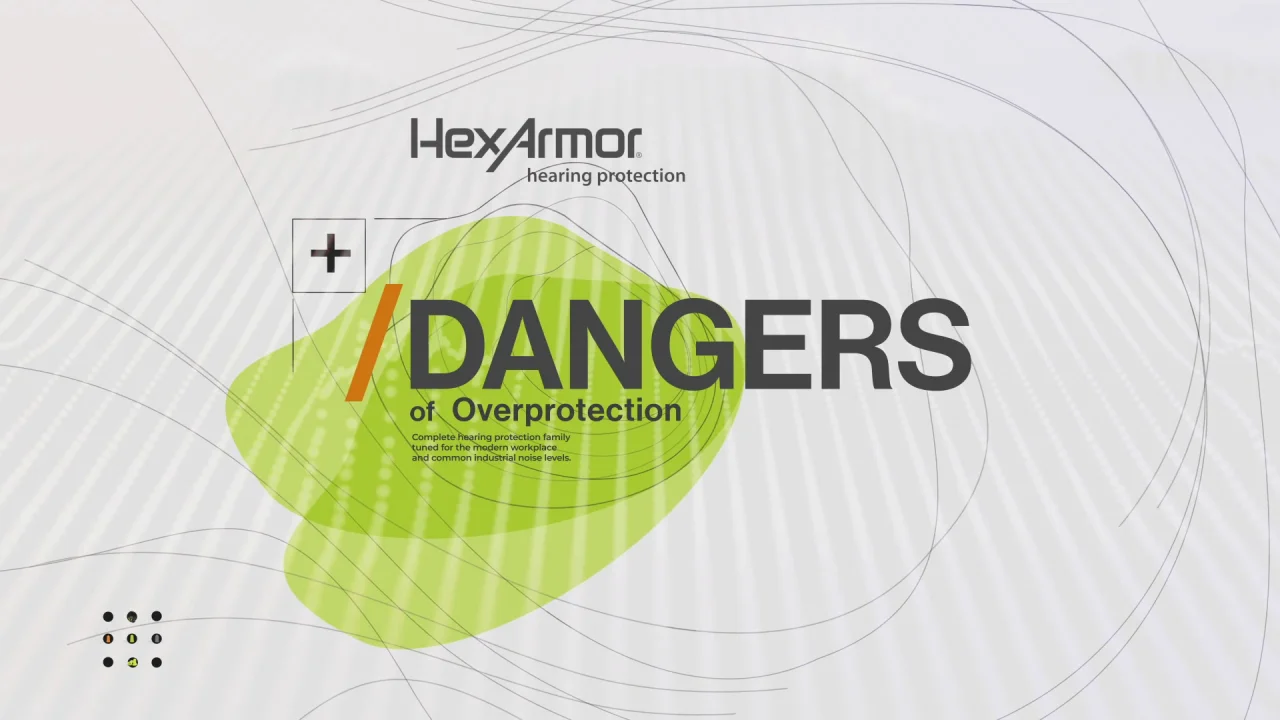While protecting your hearing is essential, too much protection can be counterproductive.
Overprotection occurs when your hearing protection exceeds the level needed for your environment – and in this case, more isn’t always better. The challenge is that you may be overprotecting without even realizing it.
A brief history of hearing protection
Earplugs have a surprisingly long history: the first patents appeared in 1884, with disposable versions emerging in 1914. Before modern earplugs, people would block their ears by pressing their fingers into the canal or closing off the tragus as a temporary solution, but it wasn’t practical for extended use.
The military played a crucial role in advancing hearing protection technology during World War I and World War II. Later innovations improved comfort and usability, such as glass-down plugs in the 1950s and foam earplugs in the 1970s. At that time, workplace noise levels were significantly higher than they are today, necessitating high levels of attenuation in workers' hearing protection.
Over the last century, earplugs have evolved into a wide range of sizes, materials, and designs that combine comfort and effective noise reduction – which is necessary in the modern workplace.
Hearing protection in today's work environment
Fast forward to today: workplaces, advancements in machinery, facility design, and operational processes – along with engineering and administrative controls – have significantly reduced noise levels.
At the same time, modern hearing protection devices offer a broader range of options, allowing workers to better match protection to specific occupational noise hazards.
Despite these improvements, many employees still rely on overly strong, static-rated protection. Could this apply to you? If so, what impact might it have on your comfort, communication, and overall effectiveness on the job?
Watch this video for an in-depth explanation, or continue reading below:
Why overprotecting your ears can be risky
Overprotecting your ears at work isn’t just uncomfortable – it can be dangerous. If you can’t hear anything, you may miss a coworker trying to communicate or the sound of potential hazards nearby.
The safe range for hearing speech and environmental sounds is typically 70–80 decibels (dB), with clear speech perception around 65 dB. Choosing earplugs with more attenuation than your work environment requires can increase the likelihood of removing them to hear your coworkers.
Even brief periods without hearing protection – just a few minutes during a shift – can compromise safety and compliance, reducing the effectiveness of your protection and increasing the risk of long-term hearing damage. Over time, this habit could negate the protection you need for the entire day.
The most immediate hazard of overprotection, however, is short-term: not being able to hear danger. Missing warning signals like alarms, equipment malfunctions, or shouted alerts can put you at serious risk. Properly balanced protection ensures you stay safe while remaining aware of your surroundings.
Think about not being able to hear a large, motorized machine coming your way if your back is turned, as in the example below.

Finding earplug options that offer the correct protection for your application or environment makes all the difference in keeping you safer – and highly protected – on the job.
How much protection do you really need?
When selecting hearing protection, the first step is to understand the noise levels in your workplace, which are typically determined through a sound audit conducted by a safety professional.
Next, it’s essential to choose the right earplug style and decibel rating, and to wear them correctly for the appropriate amount of time to avoid overprotection. That’s where HexArmor® can help.
HexArmor® can help
There are several factors to consider when choosing the right earplug or earmuff technology, which is why HexArmor® offers a variety of hearing safety information, as well as varying levels of hearing protection, to ensure you are properly protected for your specific application and environment.
Let us know if you need help finding what you need or if you're ready to start a trial - our Solution Specialists are ready to work with you. Call 1-877-MY ARMOR or send us a message.
Browse all HexArmor® hearing protection
[Blog originally posted on February 8, 2021]





Don’t forget to share this post!